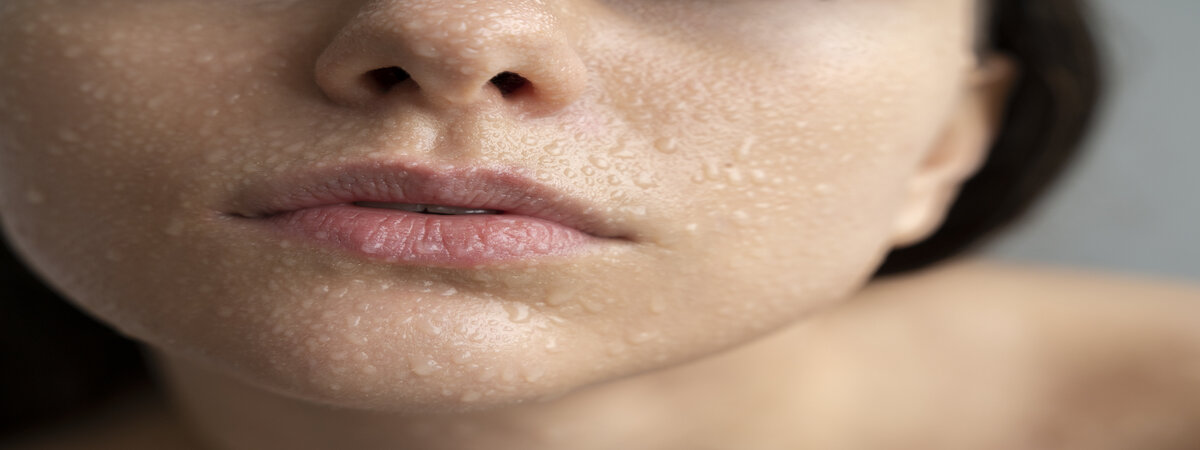
Understanding and Treating Dry Skin: Expert Tips
Dry skin, though common, can be a persistent and uncomfortable condition. From flakiness to itchiness, it can affect anyone at any age, causing frustration and discomfort. Fortunately, understanding the causes and implementing effective treatments can help alleviate symptoms and restore skin health. In this article, our London dermatologists share valuable insights and treatment tips to help you combat dry skin effectively.
Understanding Dry Skin
Dry skin, medically known as xerosis, occurs when the skin lacks proper moisture and oil. This can result from various factors, including environmental conditions, genetics, age, and certain lifestyle habits. Dry skin is often characterized by roughness, flakiness, itchiness, and sometimes even cracks or fissures.
Causes of Dry Skin
Environmental Factors: Cold, dry air, particularly prevalent during winter months, can strip the skin of its natural oils, leading to dryness.
Hot Showers: Excessive exposure to hot water can deplete the skin’s natural oils, contributing to dryness.
Harsh Soaps and Cleansers: Certain soaps and cleansers contain harsh chemicals that can strip the skin of its moisture barrier, exacerbating dryness.
Genetics: Some individuals are genetically predisposed to having dry skin, making them more susceptible to its effects.
Underlying Health Conditions: Certain medical conditions, such as eczema, psoriasis, and hypothyroidism, can cause or exacerbate dry skin.
Treatment Tips from Our Dermatologists
Hydrate Regularly: Keeping your body hydrated is essential for maintaining skin moisture. Aim to drink plenty of water throughout the day to hydrate your skin from within.
Use a Humidifier: Adding moisture to the air with a humidifier can help prevent dryness, especially during the winter months when indoor heating can further dry out the air.
Gentle Cleansing: Opt for mild, fragrance-free cleansers that won’t strip the skin of its natural oils. Avoid hot showers and opt for lukewarm water instead.
Moisturize Daily: Choose a rich, emollient moisturizer and apply it liberally to your skin immediately after bathing to lock in moisture. Look for ingredients like hyaluronic acid, glycerin, and shea butter for optimal hydration.
Protect Your Skin: Wear protective clothing, such as gloves and scarves, to shield your skin from harsh weather conditions. Additionally, always apply sunscreen with at least SPF 30 to protect your skin from the sun’s harmful UV rays.
Avoid Irritants: Steer clear of harsh soaps, alcohol-based products, and products containing fragrances or dyes, as these can further irritate dry skin.
Humectants and Occlusives: Incorporate products containing humectants like hyaluronic acid and occlusives like petrolatum or lanolin into your skincare routine to help draw in and lock in moisture.
Seek Professional Help: If home remedies and over-the-counter treatments fail to alleviate your dry skin, consult dermatologists for personalized treatment options. They can prescribe topical medications or recommend procedures tailored to your specific needs.
Conclusion
Dry skin can be a bothersome and uncomfortable condition, but with the right knowledge and treatment strategies, it can be effectively managed. By understanding the causes of dry skin and implementing the expert tips shared by our London dermatologists, you can nourish and hydrate your skin, restoring its health and vitality. Remember to prioritize gentle skincare practices, stay hydrated, and seek professional help when needed to achieve optimal skin health.
FAQ
Can diet affect dry skin?
Absolutely. A balanced diet rich in essential fatty acids, vitamins, and minerals can support skin health. Omega-3 fatty acids found in fish, nuts, and seeds, along with hydrating foods like fruits and vegetables, can help combat dryness.
How often should I exfoliate dry skin?
Exfoliation can help remove dead skin cells, but overdoing it can worsen dryness. Limit exfoliation to once or twice a week, using gentle exfoliants suitable for dry skin types.
Are there any specific skincare ingredients I should avoid for dry skin?
Yes, certain ingredients like alcohol, fragrances, and sulfates can further irritate dry skin. Opt for fragrance-free, gentle products with moisturizing ingredients like hyaluronic acid and glycerin.
Can stress worsen dry skin?
Yes, stress can exacerbate dry skin by triggering inflammatory responses in the body. Practicing stress-relief techniques such as meditation, yoga, or deep breathing exercises can help improve overall skin health.
Are there any lifestyle changes I should consider to improve dry skin?
Yes, lifestyle factors such as smoking and excessive alcohol consumption can dehydrate the skin and exacerbate dryness. Quitting smoking, moderating alcohol intake, and getting regular exercise can all contribute to healthier skin.


